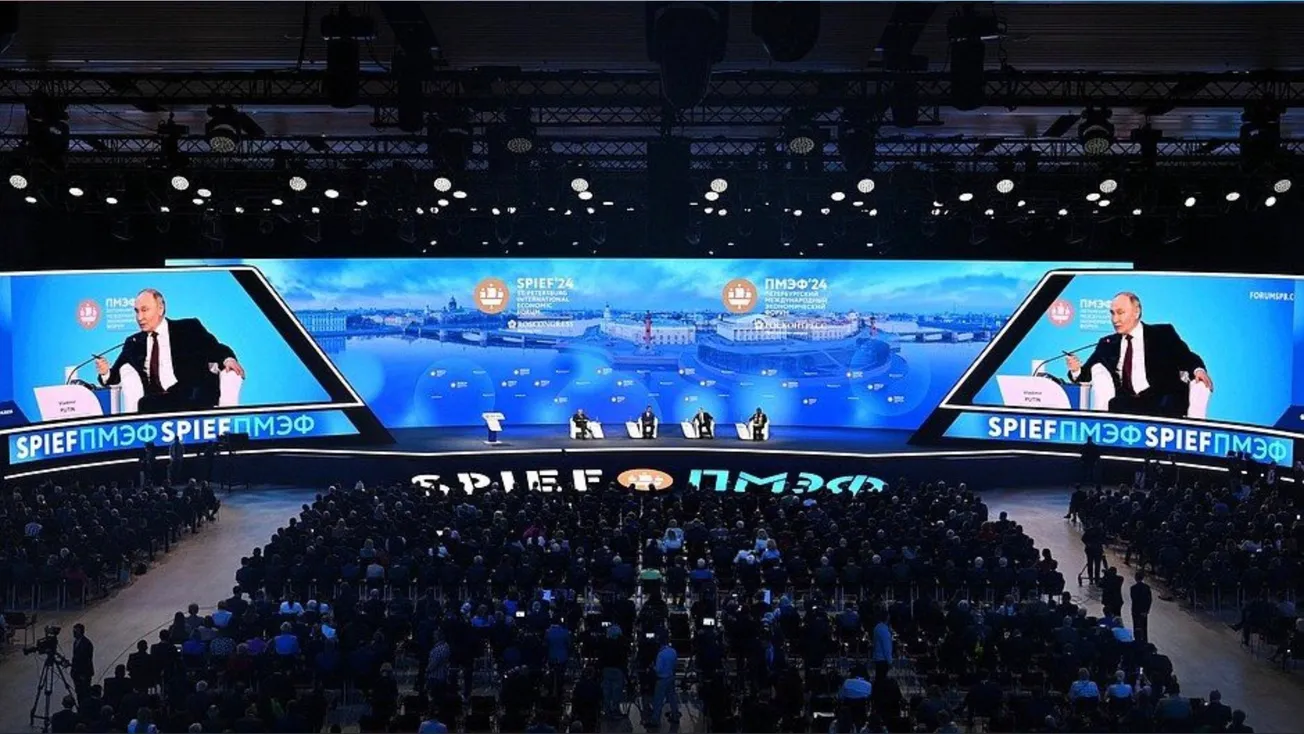President Vladimir Putin gave the opening speech at the plenary session of the St. Petersburg International Economic Forum today. The hour-long speech focused on the economy, both nationally and internationally. He noted the tremendous growth of the Russian economy, in spite of the obstacles being thrown up by those countries eager to maintain their own “hegemony” by destroying Russia and other countries through sanctions. Russia is now in the top four of the economic producers in terms of GDP, putting it even ahead of Japan, he said. Putin attributed this accomplishment to the shift in the orientation of Russia’s economy to the countries of the Global South. Between 2020 and 2023, trade with Asia had grown by 60%; with Africa, by 69%; with Latin America, by 42%; and with the Middle East, by double—a twofold increase. “Both in modern conditions and in the long term, the role, weight and, I dare to say, moreover, the future of states, depends on how effectively they can to respond to global challenges, to realize their internal potential, to use the competitive advantages and neutralize weaknesses, maintain and strengthen partnerships with other countries,” Putin said.
He noted that developing these new markets required a corresponding increase in transportation links. He then outlined the projects that were being undertaken by Russia in this regard, including the development of the “Eastern Polygon of Railroads,” as well as a North-South rail line from the Arctic to the Indian Ocean, and another rail line to the Azov Sea and the Black Sea. Not only rail: There is also the development of the Northern Sea Route and acquiring access to Russia’s Arctic ports. “In general, it is predicted that by 2030 the volume of traffic on international transport corridors through the territory of Russia will increase by one and a half times compared to 2021, primarily due to an increase in competitiveness of these routes, their convenience for business, and for the carriers.”
Having established this context, Putin then delved into the “third rail” (for Wall Street and the City of London) of necessary changes in payment procedures and financial arrangements now under consideration. He said that trade in rubles had increased by 40% between 2020 and 2023. “It is no secret, of course, that reliability and trust in Western payment systems have been thoroughly undermined, and by the Western countries themselves,” Putin remarked. He drew attention to the fact that last year, the share of payments for Russian exports in toxic currencies of “unfriendly states” had been cut in half.
“Together with foreign partners, we will increase the use of national currencies in foreign trade settlements, (and) improve the security and efficiency of such operations,” Putin said. “In particular, the BRICS is working on the formation of an independent payment system that is not subject to political pressure, abuse and external sanctions.”




